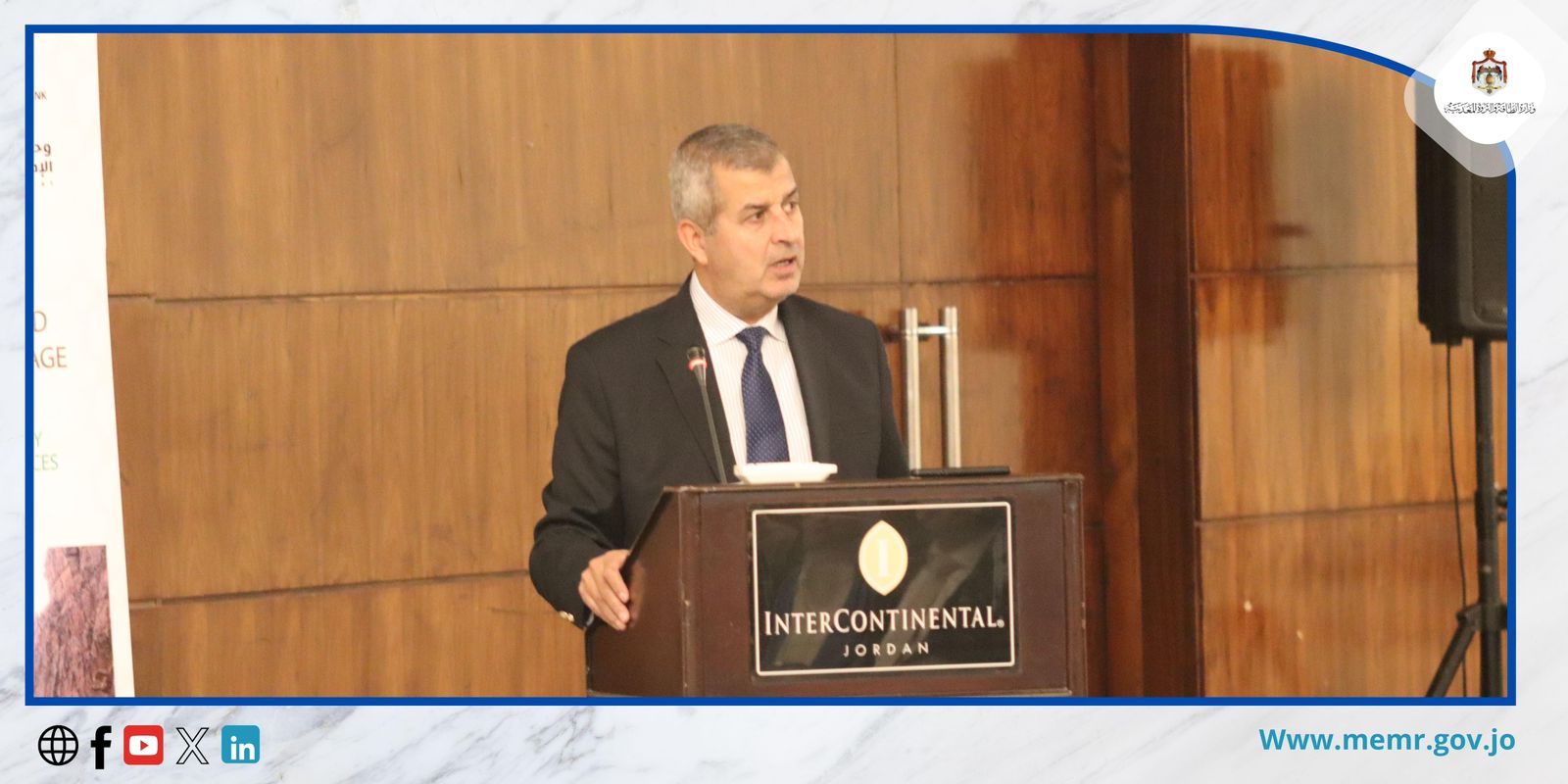
Photo Gallery
September 22, 2024 - Minister of Energy and Mineral Resources Dr. Saleh Kharabsheh stressed the importance of the new technology used in energy storage and its role in providing the opportunity to put more energy, which achieves global goals aimed at reducing the Earth's temperature to less than 1.5 degrees, especially in light of the rapid climate changes that we are witnessing recently.
Kharabsheh added, in his opening speech today, Sunday, which came during the sponsorship of the "Global Experiences in Implementing Pumped Hydroelectric Storage Projects" workshop in cooperation with the World Bank and the Ministry of Planning and International Cooperation with funding from the Multi-Donor Development Fund, we hope to implement the project on the Mujib Dam successfully as planned, stressing that good planning for the project will enable us to increase local energy contributions and raise the share of renewable energy in the total energy mix, and achieve our goals focused on increasing the percentage of renewable energy contribution to electricity generation, which enabled Jordan to achieve leadership in this field. He pointed out that the sector's strategy for 2020-2030 aims to increase the contribution of renewable energy to 30% of the generated electricity, hoping to raise this contribution to 50% in 2050.
For her part, the World Bank's permanent resident in Jordan, Holly Benner, said that there are promising opportunities in Jordan in the field of renewable energy, noting that the project to store electrical energy using water pumping and storage technology in the Mujib Dam will bring about a change in the energy sector and push towards achieving energy security for the Kingdom.
Benner pointed out that the studies prepared on the project in the Mujib Dam will double the renewable energy capacity by 2035 compared to the current situation, and the project will also provide storage solutions in a manner consistent with the Kingdom's vision to achieve energy security. Mr. Mohammed Qamh, Senior Energy Expert at the World Bank Group and Head of the Energy File at the World Bank Office in Jordan, noted that the World Bank is working with the Jordanian government to implement this project according to studies and seeks for Jordan to achieve its vision of generating 50% of electricity from renewable energy sources by 2050.
For its part, the National Electric Power Company reviewed the study prepared on the project, and the workshop topics addressed emerging issues and opportunities through water, international experiences in implemented water storage projects, technical and financial evaluation, and environmental and social requirements for hydroelectric water storage projects.
The electricity sector in Jordan is preparing to implement an electrical energy storage project using water pumping and storage technology in the Mujib Dam with a capacity of up to 450 megawatts, in cooperation with the World Bank.
This project comes within the Kingdom's efforts to enhance the use of renewable energy and reduce its dependence on imported energy, as the project is based on the "Feasibility Study of the Mujib Dam for Pumped Hydroelectric Energy Storage,” which was completed in September 2022 and recommended the need to develop a clean energy infrastructure to support the integration of more solar photovoltaic energy into the Jordanian electricity system.
The project aims to store energy with a capacity of 3,150 megawatts per hour, which is equivalent to storing electricity for 7 hours in full, which constitutes a pivotal step towards reducing the cost of the energy system and improving its stability by 2030.
The Mujib Dam hydroelectric power plant was funded by the German Society for International Cooperation (GIZ), which enhances international cooperation in implementing this ambitious project, as efforts to develop this project began in 2018 with the support of the European Union, and it was included in the Electricity Master Plan for the period 2020-2030.
Studies confirm that integrating solar photovoltaic energy will lead to significant cost reductions, as this project is considered a strategic step towards achieving Jordan's goals in shifting to renewable energy and enhancing the sustainability of the electricity sector.